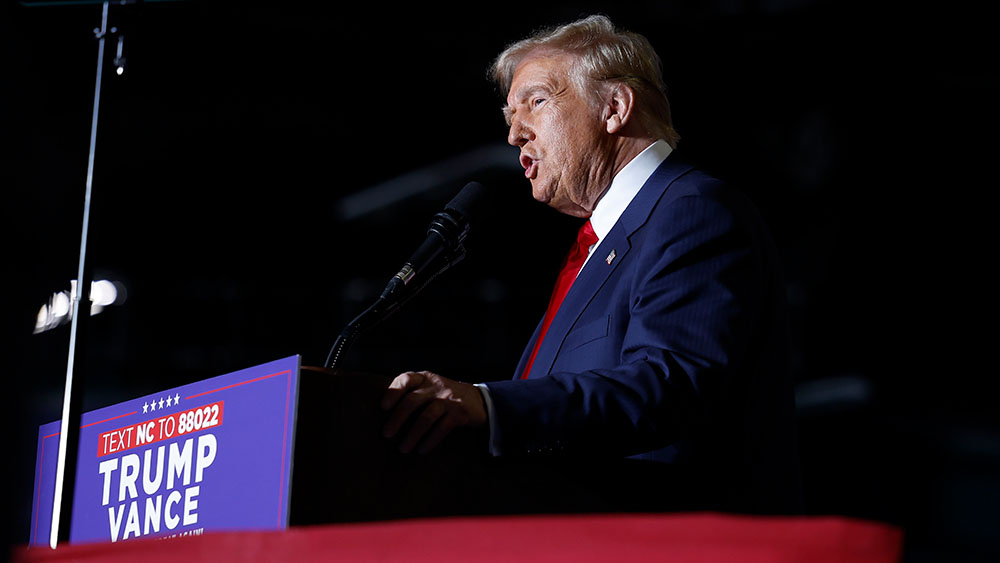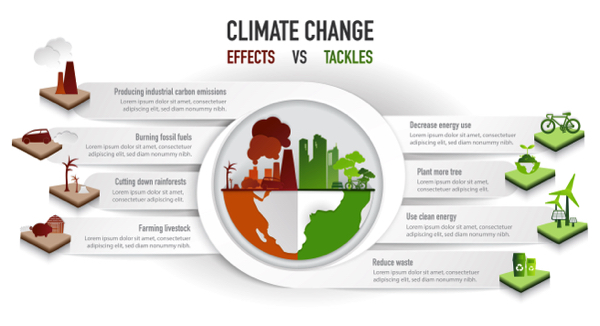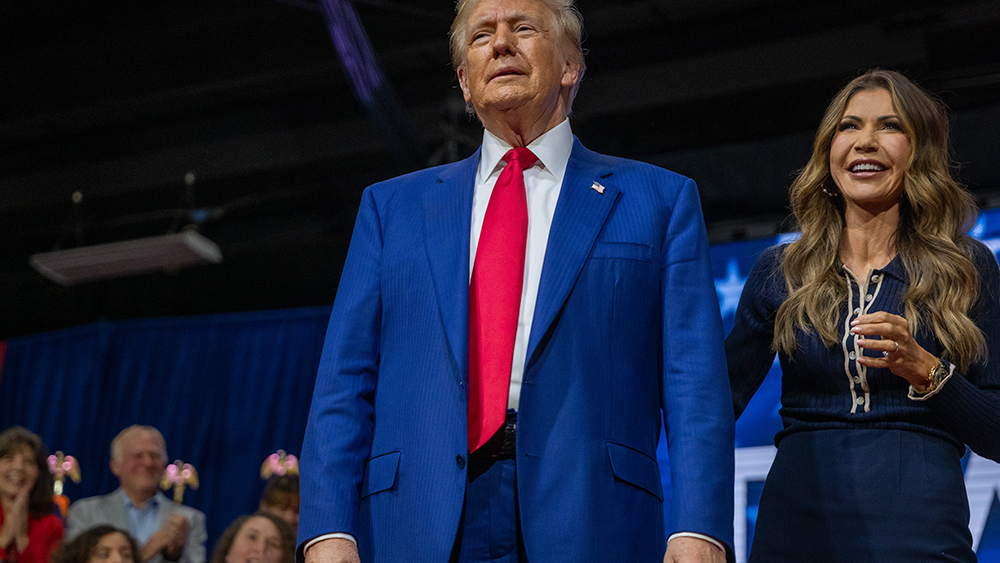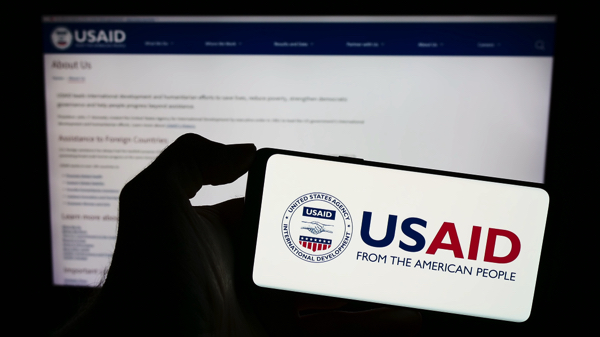The revolving door between BIG PHARMA and GOVERNMENT: A threat to public health and scientific integrity
By willowt // 2025-02-11
Tweet
Share
Copy

- A 2020 study on hydroxychloroquine (HCQ) by French microbiologist Dr. Didier Raoult was retracted in December 2024, leading to accusations of scientific misconduct and reigniting concerns about the influence of pharmaceutical companies on science, government and media.
- Despite initial influence on FDA’s emergency use authorization and subsequent research supporting HCQ’s efficacy, the drug faced dismissal by regulatory bodies and media, with critics arguing that its vilification was politically motivated and aimed at paving the way for lucrative COVID-19 vaccines.
- The retraction of Raoult’s study highlights the influence of academic publishers like Elsevier, which has been criticized for prioritizing profit over scientific transparency and restricting access to publicly funded research.
- The revolving door between government agencies and Big Pharma, exemplified by the FDA’s budget coming from pharmaceutical companies and NIH scientists receiving royalties on drug discoveries, raises concerns about conflicts of interest and the erosion of public trust.
- The HCQ controversy underscores the need for reform to address the corruption of science and public health policy by corporate interests, emphasizing the importance of prioritizing public health over corporate profits.
A case study in scientific suppression
Dr. Didier Raoult, one of Europe’s most published infectious disease experts, conducted a study in early 2020 showing that HCQ, when combined with azithromycin, was effective in treating COVID-19. His findings, which reported a 91.7% success rate in clearing the virus, were initially influential in the FDA’s emergency use authorization of HCQ for COVID-19 treatment. However, the study was later retracted, with critics accusing Raoult of misconduct. The retraction came after years of controversy, including the discrediting of a fraudulent study by Surgisphere, which falsely claimed HCQ was dangerous. Despite Raoult’s subsequent research involving over 30,000 patients, which supported HCQ’s efficacy, his work was dismissed by French regulatory bodies and the media. Dr. Richard Urso, a proponent of HCQ, argued that the drug’s safety profile is well-established, and its vilification was politically motivated. “The whole political situation has driven the fear toward this drug,” Urso said. “They used massive toxic doses and guess what they found out? When you use massive toxic doses, you get toxic results.” The suppression of HCQ raises questions about the motives behind its dismissal. Critics argue that the FDA’s revocation of HCQ’s emergency use authorization in June 2020 was less about safety and more about paving the way for lucrative COVID-19 vaccines. Under Section 564 of the FD&C Act, the FDA can only authorize experimental vaccines if no effective treatment exists. If HCQ or other repurposed drugs like ivermectin were proven effective, the legal justification for emergency vaccine authorization would collapse.The role of Elsevier and compromised medical journals
The retraction of Raoult’s study also sheds light on the role of academic publishers like Elsevier, which owns the International Journal of Antimicrobial Agents. Elsevier, a for-profit company with a $3.5 billion annual revenue, has been criticized for its high subscription fees and restrictive access policies, which limit the dissemination of publicly funded research. Despite its motto, “For the benefit of society,” Elsevier’s business model prioritizes profit over scientific transparency. The retraction of Raoult’s study is particularly troubling given that only three of the 18 authors agreed to withdraw it. Raoult himself was not consulted, and no counter-perspective was included in the USA Today article reporting the retraction. This lack of balance underscores the media’s complicity in perpetuating a one-sided narrative that aligns with pharmaceutical interests.Big Pharma’s influence on government and science
The revolving door between government agencies and Big Pharma further erodes public trust. Nearly half of the FDA’s budget comes from the pharmaceutical companies it regulates, creating a clear conflict of interest. Similarly, NIH scientists receive royalties on drug discoveries funded by taxpayer dollars, incentivizing them to prioritize profitable treatments over public health. A 2022 report by Open the Books revealed that NIH scientists received up to $350 million in royalties from 2010 to 2020. “When an NIH employee makes a discovery in their official capacity, the NIH owns the rights to any resulting patent,” the report noted. “These patents are then licensed for commercial use to companies that could use them to bring products to market.” This system enriches researchers and pharmaceutical companies at the expense of taxpayers, who bear the cost of exorbitant drug prices. The pharmaceutical industry’s influence extends to Congress, where it spent over $62 million on the 2016 elections alone. This investment has paid off, as lawmakers have repeatedly failed to pass legislation allowing Medicare to negotiate drug prices. Meanwhile, nine of the last ten FDA commissioners have gone on to work for pharmaceutical companies, further entrenching the industry’s control over regulatory agencies.A call for accountability and reform
The HCQ controversy is a microcosm of a larger problem: the corruption of science and public health policy by corporate interests. The Trump administration, with Robert F. Kennedy Jr. as head of Health and Human Services, presents an opportunity to address these issues. However, meaningful reform will require bipartisan effort and a commitment to prioritizing public health over corporate profits. As Americans continue to grapple with rising drug prices and questionable public health policies, the need for accountability has never been greater. The suppression of HCQ and other repurposed drugs during the pandemic serves as a stark reminder of the dangers of allowing corporate interests to dictate scientific and medical discourse. It is time to dismantle the revolving door and restore integrity to our public health institutions. Sources include: Brownstone.org PubMed.gov AmericanProgress.orgTweet
Share
Copy
Tagged Under:
corruption Big Pharma FDA freedom conspiracy big government deep state insanity science fraud health freedom collusion biased retraction suppressed Censored Science science tyranny badscience badhealth revolving door Elsevier liberty medical censorship science deception
You Might Also Like
Trump declares war on DOJ corruption, orders immediate firing of all Biden-era attorneys
By Willow Tohi // Share
The path to digital ID mandates: How social media regulation could reshape online privacy
By Willow Tohi // Share
Recent News
George Floyd double standard: White 4.0 athlete slaughtered by Black teen—media silent
By newseditors // Share











